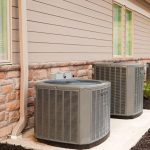
Rust on HVAC Units: When to Call the Experts
Rust on an HVAC unit may seem like a minor cosmetic issue, but it can signal much bigger problems lurking beneath the surface. Unsightly corrosion not only affects how your system looks but can also compromise its efficiency and longevity. Troubleshooting rust early can help to extend the lifespan of your HVAC system. Here’s what you need to know about the causes of rust on HVAC units, how to protect against corrosion and the role of regular maintenance in prevention.
Is Rust Normal?
Rust on an aging HVAC unit (one that is 10-plus years old) is common, but once metal surfaces begin corroding, significant damage can result. If left untreated, rust can spread to vital parts of the unit, causing unexpected repair costs. The most common cause of rust is too much moisture caused by rain, condensation or humidity. Sun exposure combined with moisture can accelerate the corrosion of metal components.
While the sun and high humidity typical of Florida’s climate are the main culprits, other causes of rust on HVAC systems include:
- Repeated exposure to a sprinkler system.
- Salt in the air, which puts coastal units at a higher risk.
- Breakdown of paint or protective coatings which leave units vulnerable.
- Poor drainage of condensation, which can lead to water pooling within the unit.
- Clogged drains, which can collect moisture and cause rust to form.
- Accumulation of dirt and debris, which traps moisture.
- Lower-quality materials or inadequate protective coatings during manufacturing.
Protecting Against Rust on HVAC Units
Performing these simple tasks goes a long way in preventing rust and other corrosion issues:
- When building a new home or replacing a unit, avoid placing HVAC units in areas prone to flooding or excessive moisture.
- Homeowners should regularly check that drain lines are cleared to prevent standing water.
- Trim any overgrown vegetation around the outdoor unit to prevent water accumulation.
- Ensure electrical components are protected from moisture, as corrosion can also affect wiring.
- Protect your HVAC system by covering it during the winter months if it’s not in use or while you’re away from home. This will help keep moisture off your unit and dirt out of it.
One of the best ways to prevent rust on an HVAC unit is through preventative regular maintenance. Schedule regular inspections to catch early signs of rust or corrosion. Regular checks by an HVAC professional can help prevent minor issues from becoming expensive and significant problems.
Tasks your HVAC technician should handle annually include:
- Cleaning the Condenser Coils – The condenser coils on the outside of your air conditioning unit can accumulate dirt, debris and other build-up over time.
- Checking Refrigerant Levels– Your air conditioning system relies on refrigerant to produce cool air by absorbing heat. Over time, refrigerant levels can drop due to slow leaks.
- Replacing Air Filters– Dirty air filters block airflow and reduce your air conditioning system’s ability to cool your home. Check your filters monthly during heavy usage seasons and replace them as needed.
When To Call the Experts
If you notice signs of corrosion developing on any part of your HVAC system, contact a professional immediately so they can inspect it and suggest repairs before any further damage occurs. Prompt repairs are crucial to address leaks immediately. Your HVAC technician may recommend that rusted or corroded components be replaced to prevent further deterioration. Keeping your HVAC system well-maintained with periodic professional cleanings and maintenance will help to ensure that it continues to function well, thereby preventing unsightly rust buildup.
Keep Your System Well-Maintained
Regular maintenance is key to significantly reducing the risk of rust forming on your HVAC unit. Barineau Heating and Air Conditioning offers residents of North Florida and South Georgia an annual service plan which will help you save time, money and effort while keeping your HVAC system running efficiently. Protect your unit from rust while also extending its life by signing up for our Total Comfort Service Program today, or speak with a home comfort specialist.




